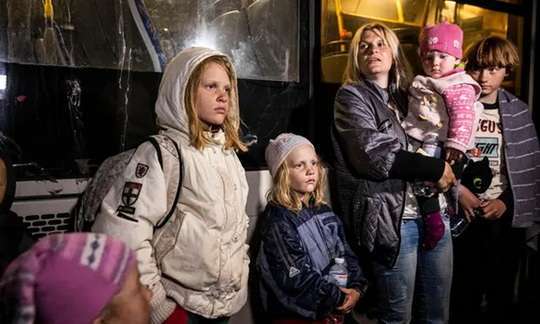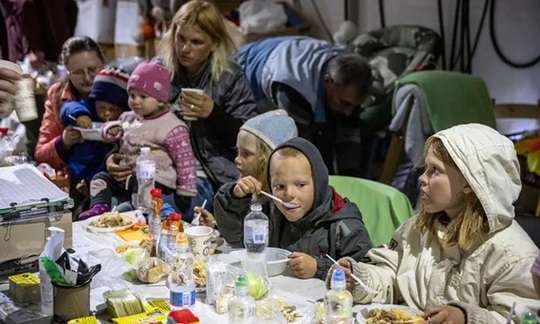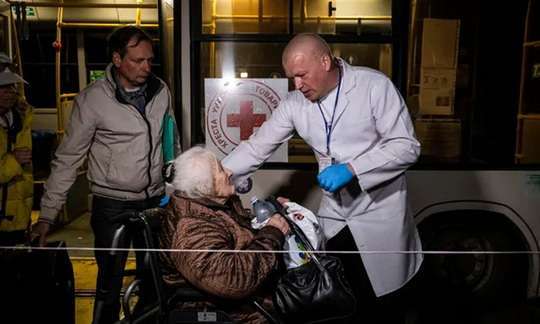After two months sheltering in besieged Mariupol, civilians arrived in Ukraine-held Zaporizhzhia exhausted and with few possessions
The last civilians rescued from the besieged Azovstal steel plant complex in Mariupol reached safety in Ukrainian held territory late on Sunday evening.
The convoy arrived in the south-eastern city of Zaporizhzhia after dark, carrying about 170 evacuees. There were 51 civilians who had been sheltering in the Azovstal complex, and about 120 others who had walked or hitched lifts across the city to a pickup point in a ruined shopping mall.
The journey of just over 200 kilometres took two days, as the convoy of buses was held for hours at Russian checkpoints and the hungry, weary residents inside interrogated.

Exhausted women and children arrived from Mariupol by bus to the city of Zaporizhzhia. Photograph: ed ram/The Guardian
«I didn’t think we would make it out alive, so I don’t have any plans for my future» said Natalia, who worked at the Azovstal plant all her adult life and then sheltered for over two months in its network of bunkers.
She had fled with little more than a collection of drawings made by children in their shelter; she had organised drawing competitions to occupy them and kept the pictures to remember. «I wouldn’t have given them up even if they shot me»
Ukraine’s Deputy prime minister Iryna Vereshchuk said on Saturday that «all women, children and elderly» had come out of the complex and were being evacuated.
About 36 hours later the group filed slowly off the buses into the late evening dark, and fell upon a hot meal prepared in the registration tent. It also had clothes and toys, as most people fled with just a couple of bags.
«It is a breath of fresh air to be on Ukrainian-held land» said Tatiana, who fled with her daughter and granddaughter.

The refugees were ushered into a large tent and offered hot food and drinks. Photograph: ed ram/The Guardian
Many children and elderly people were among the exhausted-looking arrivals.
«I just want to live and start again … everything I have is here» said Yegor Chekhonadsky, pointing to a cluster of bags at his feet. He, his wife and two sons had sheltered at Azovstal since early March. «Of course, I’m overjoyed, and happy to be in Ukraine»
Mariupol has endured the most destructive fighting of the 10-week-old war. The plant is the last part of the city – a strategic southern port on the Azov Sea – still in the hands of Ukrainian fighters. Scores of civilians were trapped for weeks alongside them in the plant with little food, water or medicine.

The evacuation effort which began last weekend was hampered by renewed fighting in Mariupol. Photograph: ed ram/The Guardian
Pascal Hundt, the head of delegation for the ICRC in Ukraine said the group «have all endured a level of horror no human should have to go through» The operation began on 5 May, the third safe passage coordinated in recent days, but around 2000 soldiers – many of them injured – are thought to remain trapped.
Earlier on Sunday, the remaining Ukrainian fighters at the plant vowed to continue their stand as long as they are alive. «We don’t have much time» - Captain Sviatoslav Palamar told an online news conference, pleading with the international community to help evacuate wounded soldiers.



